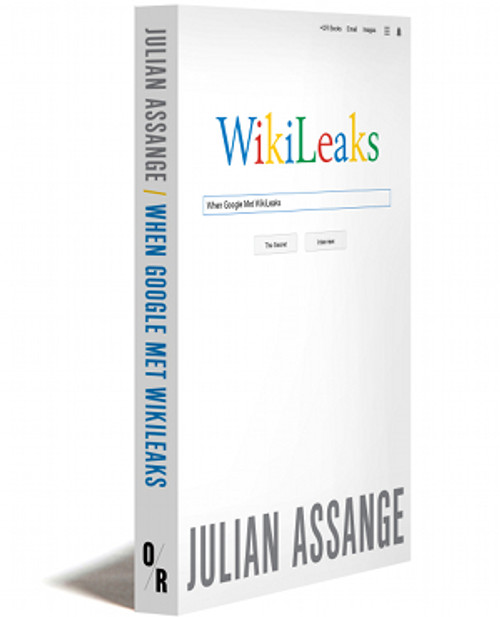A Public Service
“Vital for anyone who wishes to blow the whistle while reducing their risk of retaliation.”
—Micah Lee, director of information security at The Intercept“Packed with practical nuts-and-bolts guidance.”
—Tom Devine, legal director, Government Accountability Projectabout the bookabout
Governments and corporations now have the tools to track and control us as never before. In this whistleblowing how-to, we are provided with tools and techniques to fight back and hold organizations, agencies, and corporations accountable for unethical behavior.
Can one person successfully defy a globe-spanning corporation or superpower without being discovered? Can a regular citizen, without computer expertise, release information to the media and be sure her identity will be concealed?
At a time we're told we are powerless and without agency in the face of institutions such as Google, Facebook, the NSA, or the FBI, digital security educator Tim Schwartz steps forward with an emphatic "yes". And in fewer than 250 pages of easy-to-understand, tautly written prose, he shows us how. A Public Service can teach any one of us the tricks to securely and anonymously communicate and share information with the media, lawyers, or even the U.S. Congress. This book is an essential weapon in the pervasive battle to confront corruption, sexual harassment, and other ethical and legal violations.
“This timely book is a guide to any would-be whistleblower, any person considering the disclosure of information which exposes wrong doing or harmful behavior. In today's highly surveilled digital world, knowing the safest and most secure way to reveal wrongdoing is critical. Thoroughly and in detail, Tim Schwartz outlines the pros and cons of different methods of exposure. It is the must-have handbook for concerned employees as well as journalists and lawyers working with whistleblowers.”
—Katharine Gun, former British intelligence worker who revealed illegal U.S. wiretapping of the United Nations Security Council prior to the 2003 invasion of Iraq
“A simple guide to a daunting and vital subject. Schwartz has done outstanding work explaining the ethical, personal, technical and legal considerations in blowing the whistle.”
—Cory Doctorow, Boing Boing
“In today's digital age with the vast amount of information technology available to target disclosures that those in power would prefer remain hidden, this book provides a practical roadmap when making that often life-altering choice of standing up and exposing abuse and misuse of power across all sectors of society.”
—Thomas Drake, former National Security Agency senior executive and whistleblower
About The Author / Editor
Preview
Protecting your identity is the priority, and anonymity is the key to success.
Anonymity is only possible when you can see yourself as the world does - as the world sees your identity - then figure out how to disguise it.
As someone ready to challenge power, you may have thought the information you want to expose is the most important thing you have to protect. Wrong. Your identity must be protected above all else. If you don't protect it, you will be compromised. That can prevent you from exposing the information.
Your identity isn't defined by simply your name, birth date, Social Security number, or any other basic piece of information. Your identity is also not limited to how you identify internally, or in terms of race or gender - it includes how you express yourself in the world, as well as how you are seen by governments, corporations, your social network, and even your family.
Data tracking and logging has evolved exponentially in the last few decades, and your identity is now bundled up in numerous systems that are hard to even conceptualize. Your identity now comprises a virtually infinite number of data points, including the products and services you use, who you communicate with, who your connections communicate with, what you do online, and where you physically go.
You are your habits.
The only real way to protect your identity is with anonymity. Divest your true identity from the acts you will perform that challenge power. The chances of retaliation are much lower if you are anonymous — it is harder to be retaliated against if no one knows who you are. Anonymity can also correct the power imbalance between you and the system you are confronting. The underdog can have a fighting chance.
Danielle Brian, executive director of the Project on Government Oversight, emphasizes the importance of being unknown. “What you’ll rarely see is the case of the person who isn’t anonymous and seeing them walk away unscathed,” she says.
As you proceed down the path of challenging the status quo and the powers that be, you may decide to be the public face of your cause. This can have benefits or drawbacks. But in order to have the choice to do so, rather than the obligation to do so, you must first be anonymous. If you aren’t anonymous to start, you will never get to decide if your identity will be made public. Instead, the decision will be out of your hands, and your identity will be at the mercy of your adversaries, the public, and perhaps the press.
So start by being anonymous. You can always decide to reveal your identity later on, but you can never get anonymity back once your identity is revealed.
in the media
A Public Service
“Vital for anyone who wishes to blow the whistle while reducing their risk of retaliation.”
—Micah Lee, director of information security at The Intercept“Packed with practical nuts-and-bolts guidance.”
—Tom Devine, legal director, Government Accountability Projectabout the bookabout
Governments and corporations now have the tools to track and control us as never before. In this whistleblowing how-to, we are provided with tools and techniques to fight back and hold organizations, agencies, and corporations accountable for unethical behavior.
Can one person successfully defy a globe-spanning corporation or superpower without being discovered? Can a regular citizen, without computer expertise, release information to the media and be sure her identity will be concealed?
At a time we're told we are powerless and without agency in the face of institutions such as Google, Facebook, the NSA, or the FBI, digital security educator Tim Schwartz steps forward with an emphatic "yes". And in fewer than 250 pages of easy-to-understand, tautly written prose, he shows us how. A Public Service can teach any one of us the tricks to securely and anonymously communicate and share information with the media, lawyers, or even the U.S. Congress. This book is an essential weapon in the pervasive battle to confront corruption, sexual harassment, and other ethical and legal violations.
“This timely book is a guide to any would-be whistleblower, any person considering the disclosure of information which exposes wrong doing or harmful behavior. In today's highly surveilled digital world, knowing the safest and most secure way to reveal wrongdoing is critical. Thoroughly and in detail, Tim Schwartz outlines the pros and cons of different methods of exposure. It is the must-have handbook for concerned employees as well as journalists and lawyers working with whistleblowers.”
—Katharine Gun, former British intelligence worker who revealed illegal U.S. wiretapping of the United Nations Security Council prior to the 2003 invasion of Iraq
“A simple guide to a daunting and vital subject. Schwartz has done outstanding work explaining the ethical, personal, technical and legal considerations in blowing the whistle.”
—Cory Doctorow, Boing Boing
“In today's digital age with the vast amount of information technology available to target disclosures that those in power would prefer remain hidden, this book provides a practical roadmap when making that often life-altering choice of standing up and exposing abuse and misuse of power across all sectors of society.”
—Thomas Drake, former National Security Agency senior executive and whistleblower
About The Author / Editor
Preview
Protecting your identity is the priority, and anonymity is the key to success.
Anonymity is only possible when you can see yourself as the world does - as the world sees your identity - then figure out how to disguise it.
As someone ready to challenge power, you may have thought the information you want to expose is the most important thing you have to protect. Wrong. Your identity must be protected above all else. If you don't protect it, you will be compromised. That can prevent you from exposing the information.
Your identity isn't defined by simply your name, birth date, Social Security number, or any other basic piece of information. Your identity is also not limited to how you identify internally, or in terms of race or gender - it includes how you express yourself in the world, as well as how you are seen by governments, corporations, your social network, and even your family.
Data tracking and logging has evolved exponentially in the last few decades, and your identity is now bundled up in numerous systems that are hard to even conceptualize. Your identity now comprises a virtually infinite number of data points, including the products and services you use, who you communicate with, who your connections communicate with, what you do online, and where you physically go.
You are your habits.
The only real way to protect your identity is with anonymity. Divest your true identity from the acts you will perform that challenge power. The chances of retaliation are much lower if you are anonymous — it is harder to be retaliated against if no one knows who you are. Anonymity can also correct the power imbalance between you and the system you are confronting. The underdog can have a fighting chance.
Danielle Brian, executive director of the Project on Government Oversight, emphasizes the importance of being unknown. “What you’ll rarely see is the case of the person who isn’t anonymous and seeing them walk away unscathed,” she says.
As you proceed down the path of challenging the status quo and the powers that be, you may decide to be the public face of your cause. This can have benefits or drawbacks. But in order to have the choice to do so, rather than the obligation to do so, you must first be anonymous. If you aren’t anonymous to start, you will never get to decide if your identity will be made public. Instead, the decision will be out of your hands, and your identity will be at the mercy of your adversaries, the public, and perhaps the press.
So start by being anonymous. You can always decide to reveal your identity later on, but you can never get anonymity back once your identity is revealed.












